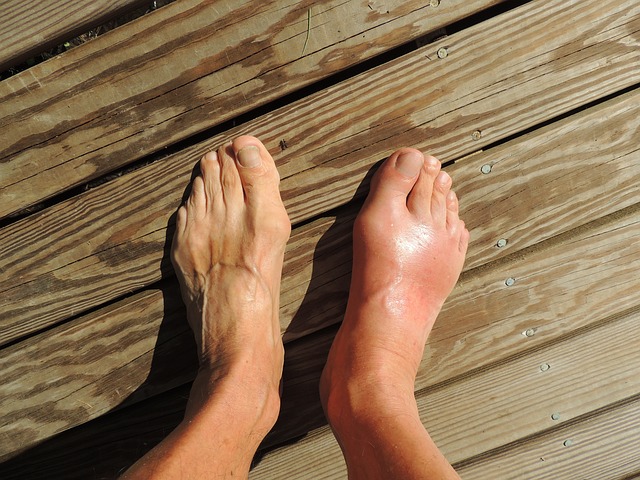Dr Ciaran Roarty of Scally McDaid Medical Practice Letterkenny explains what happens during a gout attack:
Gout is a common condition in which acute episodes of pain is experienced in one or more joints – a gout attack. It affects about 1 in 100 people and men are more commonly affected than women. It is often noted to run in families.
The pain is caused by a chemical called uric acid which builds up in the blood and, from time to time, precipitates as crystals, causing pain and irritation in the joints.
Uric acid is made naturally in the body and usually does not cause any harm. There is a fine balance between the amount produced in the body and the amount you get rid of in the urine and stools. Some people do not excrete enough in the urine while in others there are other factors which contribute to the build-up eg
- Too much alcohol intake
- Insufficient Vit C in your diet
- Sugar sweetened drinks
- Certain foods eg a lot of mussels or yeast extract. A normal balanced diet will not cause problems however.
- Certain medications- eg fluid tablets
- Certain underlying health conditions eg psoriasis, obesity, high blood pressure, high cholesterol, Diabetes Mellitus, kidney and bone marrow disorders
Symptoms
Usually severe pain develops over a few hours in one joint – the base of the toe is most commonly affected. Any joint can be affected and if not treated can be very painful for up to 10days. Sometimes attacks are not as severe and may occur very infrequently. If untreated repeat gout attacks may damage joints, kidneys or form little painless bumps under the skin called tophi.
Diagnosis
Your doctor will recognise typical symptoms and signs of gout and may order a blood test to confirm, though usually a couple of weeks after your symptoms have settled.
Treatment:
Keeping the affected leg raised will help reduce swelling and ice packs (though not directly on the skin) for short periods of time will also help.
Anti-inflammatory painkillers may be prescribed by your doctor for a few days until the inflammation and pain settle. Most people do not have any side effects from this short course, though if you do you should consult your doctor. Anti-inflammatory medicines may not be suitable for you if you have asthma, high blood pressure, kidney problems or heart failure or indeed if you are on certain medicines. Your doctor or pharmacist will advise and there are other medicines which may be used if anti-inflammatory are not suitable.
Can I prevent gout attacks recurring?
Losing weight if you are overweight along with a sensible balanced diet will help. Cutting down on alcohol if you drink a lot and particularly avoiding binge drinking can also reduce the likelihood of recurrence. Other things to help include avoiding sugar sweetened soft drinks, drinking plenty of water, checking your blood pressure and checking if any of your medicines contribute to gout.
Many people find the above changes result in attacks only now and again. However for some, attacks may occur more often and your doctor may prescribe a medicine such as Allopurinol to help prevent attacks. It takes 2- 3 months to become fully effective. Frequent attacks, tophi, kidney damage or kidney stones due to uric acid will determine whether your doctor prescribes such medication. There are other options if you are unable to tolerate the first prescribed medication.
Will I have it forever?
An acute attack of gout will last about a week to 10 days and two-thirds of people will go on to have another attack within a year. Repeated episodes and chronic gout can lead to more long-term damage to the joints and persistent pain so if you suspect you have it, have it checked out.
The above information is intended as advice only and should you have any concerns contact your own Doctor.
Dr Ciaran Roarty MB BCh BAO MICGP DRCOG is a full-time GP at Scally McDaid Medical Practice, Scally Place, Letterkenny, Tel 0749164111
www.scallys.ie
FollowScally McDaid Medical Practice on Facebook






